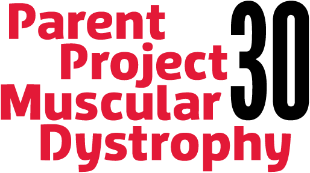Late Non-Ambulatory (Adults)
It is important that adults at this stage receive the care and services they need to stay as healthy, independent, and active as they want to be. It is also important to be engaged in a job or career, maintain an active social life, and stay engaged with the community.
Important Information for All Stages
Remember: If you need surgery or go to the emergency room, tell the doctors not to give inhaled anesthesia or succinylcholine. They also need to use caution when giving oxygen.
If you are taking steroids, it is imperative they are not stopped suddenly for any reason. This puts you at risk for an adrenal crisis, which is a life-threatening condition.
Adult Imperatives
The Adult Imperatives for Duchenne MD (download) describes the imperative components of transitions of care across late adolescence and adulthood as described in the Care Considerations. This document is intended as a brief, single page snapshot of care, helpful for medical providers who may not be familiar with caring for adult men living with Duchenne.
Physical Symptoms
Adults with Duchenne have more trouble using their hands and maintaining good posture. Weakness continues during the adult phase. However, many young adults with Duchenne can maintain some function of their fingers well into the adult stage. It is important to plan for an adult life that maintains as many elements of independence as possible, within a supportive care environment.
Transition to Adult Care
Transitional planning from pediatric to adult care should continue during the adult stage. This transition should be a planned out, multi-year process. You should play an active role in your own care. Ask your parents/support people to leave the room for a few minutes if you want to speak to providers on your own.
Steroids
Adults with Duchenne should talk to their doctors about whether to continue using steroids, and if so at what dose. Staying on steroids may slow progression of weakness, but as an adult, the benefits and downsides should be considered on an individual basis.
Muscle and Joint Care
Most muscles of the body are eventually affected by Duchenne, including the heart and breathing muscles, and need to be monitored.
Stretching of the hands and upper limbs should continue to be a part of your daily routine may help minimize tightness and help with comfort. Contractures (joints becoming locked in one position) are a common problem at this stage. It is important to try to minimize tightness in the shoulders, elbows, wrists, and fingers. Ask your neuromuscular specialist and physical therapist about helpful stretching routines.
Mobility & Environmental Accessibility
You should talk to your physical therapists and occupational therapists about the best equipment to support your independence and participation. The therapists may suggest adaptive equipment to help adults with eating, drinking, toileting, and transferring.
Heart Care
Heart problems are common during this phase. Heart tests (EKG, echocardiogram, and/or cardiac MRI) may begin to detect heart changes that can be treated with medication. Visits to your cardiologist should happen at least once a year, and may be increased to every six months with signs of heart disfunction or fibrosis.
Two problems are common in the hearts of adults with Duchenne:
- Your heart muscle may become weak and not pump blood properly.
- You may have problems with heart rate or rhythm.
You should be started on medication (ACE-Inhibitor) by this stage, even if you are not showing signs of heart problems or changes. Keep a copy of your latest heart test results to show other members of your care team, or if you have a medical emergency requiring a hospital visit.
Lung Care
Duchenne affects most muscles, including muscles important for breathing. Breathing muscles will become weaker with age. The diaphragm is a muscle under the lungs that helps with breathing and supports taking deep breaths. Many people with Duchenne develop diaphragm weakness at this stage and have difficulty taking deep breaths. Adults may also have trouble coughing and require assistance.
Pulmonary function tests should continue to be done at least once a year to monitor the strength of the breathing muscles over time. However, it is important to talk to your pulmonologist about how to monitor for symptoms of difficulty breathing at home. Fatigue, morning headaches, and waking up frequently during the night may be mistaken for other problems, but can be a result of breathing problems at night.
If you have any symptoms of decreased oxygen during sleep, your pulmonologist should order a sleep study. Everyone has more shallow breathing during sleep, but people with Duchenne may have even more shallow breathing, resulting in decreased oxygen during sleep (“nocturnal hypoventilation”). If the sleep study shows that there is decreased oxygen during sleep, using non-invasive ventilation can help breathing and increase oxygen during sleep.
A weakened diaphragm can also result in a weak cough, which decreases the child’s ability to clear secretions out of his lungs and may result in more lung infections, and even pneumonias. During pulmonary function testing, the respiratory therapist will also measure the “cough peak flow.” If coughing becomes weak, methods to assist cough should be discussed with your pulmonologist.
Ensure you get all of the recommended childhood shots. If you get sick, especially with a cold or chest infection, make sure you receive antibiotics, extra breathing tests, and extra help coughing. Your lung function should also be tested before any type of surgery.
Psychosocial and Mental Health Care
The physical limitations and progression of Duchenne may make you feel angry or sad. Adults typically want to be more independent but feel frustrated because they require more care and assistance from others, such as parents. Adults with Duchenne may also be anxious about their health status. As muscle weakness progresses, people with Duchenne are at risk for becoming more isolated or socially withdrawn. Talk to your caregivers and support people about your feelings. Work with your caregivers and support people to remain involved in activities and friendships outside of the home and family. Family and individual counseling may be helpful at this stage and should be considered.
DMD Pathfinders: Advice guides for teens & adults living with Duchenne
PPMD has appreciated the work of the DMD Pathfinders, a user-led charity from the UK who work to promote choice and control and quality of life for teenagers and adults living with Duchenne Muscular Dystrophy.
The DMD Pathfinders have developed a series of advice guides for teens and adults living with Duchenne, and have kindly given PPMD permission to share with our community. They have used their knowledge to create downloadable comprehensive guides in the areas of ventilation, nutrition, and technology usage. Please visit the following links to download and review these materials:





